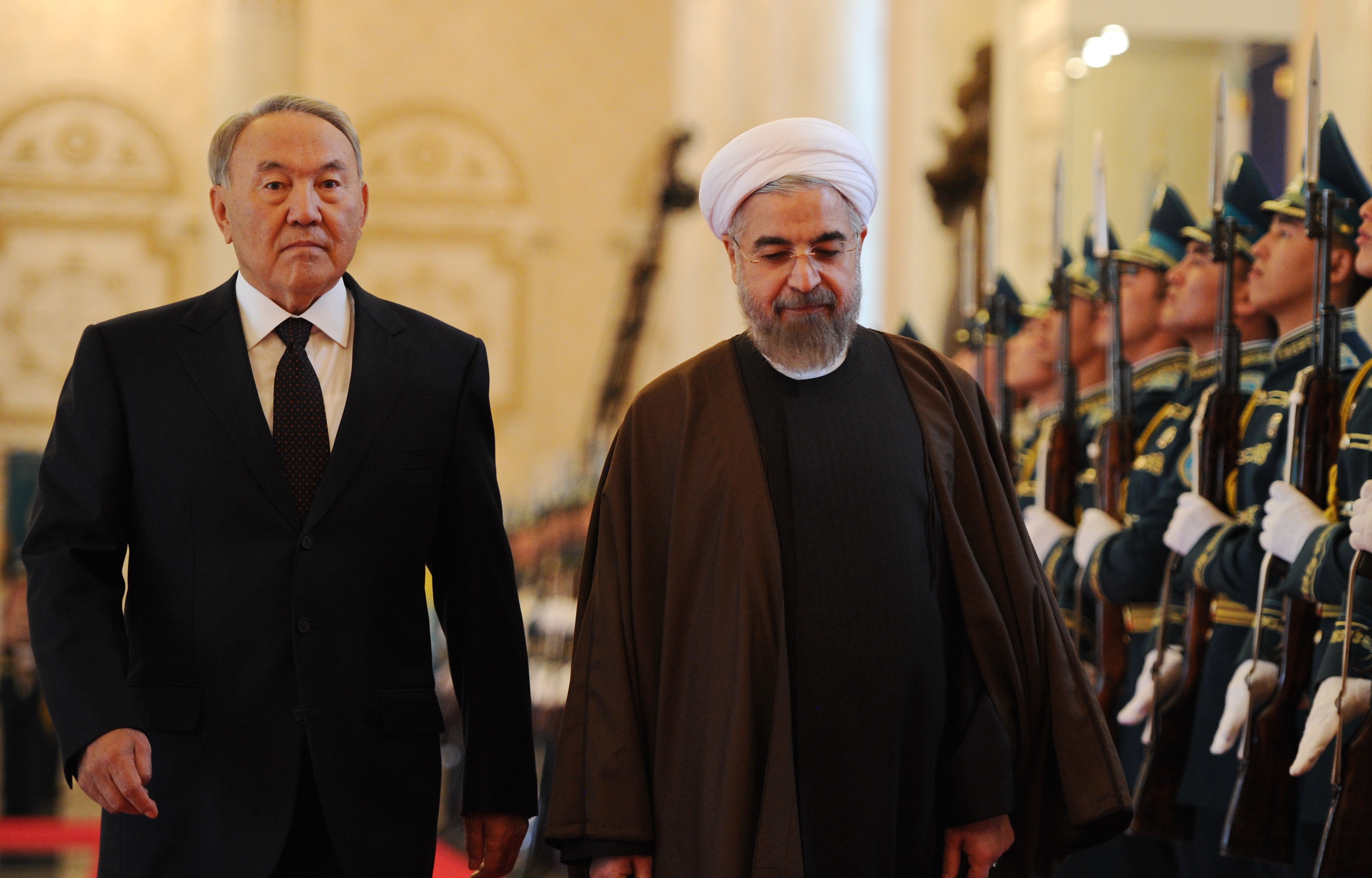Leaders in the Caspian region are speaking out in favor of the Joint Comprehensive Plan of Action (JCPOA), better known as the Iranian nuclear deal, as conservatives in the United States and U.S. President Donald Trump continue to push for its repeal.
On Thursday, Kazakhstan’s President Nursultan Nazarbayev spoke at the third meeting of the Astana Club, an international forum that debates topics impacting Eurasia, calling the Iran deal a “good agreement.”
“The first multilateral negotiations [related to the Iranian nuclear issue] were held in Kazakhstan, and we have invited all relevant bodies. Now they raised a question about reconsideration. We do not encourage it. The multilateral agreement on the nuclear program of Iran was a good agreement, we should keep on with this," Nazarbayev said, according to the Kazakh Telegraph Agency.
Trump has repeatedly criticized the deal, which had been finalized in July 2015 under Barak Obama’s tenure as U.S. president, calling it “one of the worst deals in history,” threatening to scrap it completely and re-impose harsh sanctions on Iran.
Washington’s annoyance with Iran is not so much the deal itself as it is Iran’s ballistic missile program, Tehran’s support for the Syrian government, and a religious-political Houthi insurgency in Yemen.
"Houthi missile attacks against Saudi Arabia, enabled by Iran's Islamic Revolutionary Guard Corps, threaten regional security and undermine UN efforts to negotiate an end to the conflict," the White House said in a statement released earlier this month.
Meanwhile, the International Atomic Energy Agency (IAEA) has frequently insisted on the peaceful nature of Iran’s nuclear program, saying that Iran has been faithful to its JCPOA commitments.
According to the JCPOA, Iran is required to curb its nuclear activities in exchange for the lifting of nuclear-related sanctions and access to frozen capital. However explicit terms regarding Iran’s ballistic missile program were never part of the agreement, which had been negotiated under the Obama administration, much to the consternation of Trump and his Republican allies.
Iran claims it has shut down many of its centrifuges; under the deal it retained the right to enrich uranium to a level of 3.5 percent and sell it abroad. Nuclear weapons require enrichment of 80 percent or more.
“I think any questions can be settled in a diplomatic way, through consensus,” Nazarbayev said at the Astana Club on Thursday. “In general, even the world wars [were] eventually settled through negotiations. Any questions can be resolved through negotiations.”
The two Caspian region countries Kazakhstan and Iran have a strategic and economic relationship. While they do not share any land border, they are linked via the 917.5 km (570 mi), the Kazakhstan-Turkmenistan-Iran railway, launched in 2014.
In April 2016, officials from Astana and Tehran signed nearly 100 agreements and memorandums worth $2 billion, ranging from sectors like metallurgy and mining, to agriculture, transportation and logistics.
While Kazakhstan was not a party to the Iran nuclear agreement, it plays a pivotal role in the global nuclear supply chain. This summer, the International Atomic Energy Agency (IAEA) opened a uranium bank in Oskemen, close to Kazakhstan’s border with Russia, where it will house up to 90 metric tons of low enriched uranium (LEU) and act as a supplier of last resort for member states that need LEU to run their nuclear facilities used to generate electricity.







 Azerbaijan and Armenia started the process of demarcation of their border on Tuesday, with the installation of the first border markers based on ge...
Azerbaijan and Armenia started the process of demarcation of their border on Tuesday, with the installation of the first border markers based on ge...
 Armenian sappers commenced on Monday mine-clearance operations in the territories adjacent to the Saint Mary Church in village of Voskepar (Armenia...
Armenian sappers commenced on Monday mine-clearance operations in the territories adjacent to the Saint Mary Church in village of Voskepar (Armenia...
 Iran has refuted reports of alleged damage to Shimon Peres Negev Nuclear Research Centre located southeast of Dimona, Israel, during the recent air...
Iran has refuted reports of alleged damage to Shimon Peres Negev Nuclear Research Centre located southeast of Dimona, Israel, during the recent air...
 Iran’s Foreign Minister, Hossein Amir-Abdollahian, has labeled a foiled Israeli drone attack in certain parts of the country as a "failure" for Isr...
Iran’s Foreign Minister, Hossein Amir-Abdollahian, has labeled a foiled Israeli drone attack in certain parts of the country as a "failure" for Isr...



